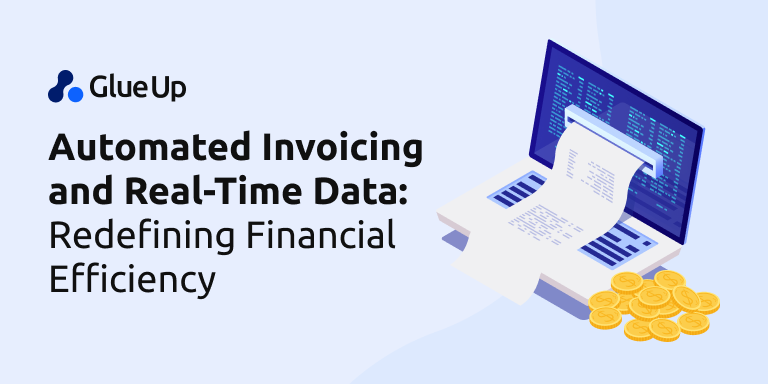
Financial tracking and reporting are the foundation of your association’s revenue generation, growth, operational efficiency, and overall success. A clear understanding of your financial health is essential for making informed decisions, identifying growth opportunities, and maintaining long-term sustainability.
Many organizations struggle in this area due to either technical issues or lack of expertise. If you find it difficult to track finances or prepare reports, this blog is for you.
In this blog, we discuss the critical role of financial tracking and reporting and explain why it matters for your association. Read on to discover how to leverage the power of your financial data.
Key Takeaways
- A clear understanding of financial performance is essential for making informed decisions, identifying growth opportunities, and ensuring long-term sustainability.
- Tracking financial data is the foundation for generating meaningful reports that drive decision-making.
- By analyzing financial information, associations can identify cost-saving opportunities, measure performance, and make data-driven decisions.
- Accounting software and other tools can automate tasks, improve accuracy, and provide valuable insights.
- By centralizing financial operations, providing real-time analytics, and enabling secure payments, Glue Up empowers associations to achieve financial success.
The Basics of Financial Tracking and Reporting
Before exploring the concepts and insights of financial tracking and reporting, let's first discuss the basics to better understand them.
Definition and Key Components
Financial tracking involves the ongoing monitoring and recording of your association’s income, expenses, and cash flow. It’s the process of gathering financial data and inputting it into your accounting system. Key components of financial tracking include:
- Income: Membership dues, event fees, sponsorships, grants, and other revenue streams.
- Expenses: Operational costs, program expenses, salaries, marketing, and administrative costs.
- Cash flow: The movement of money into and out of your association.
Difference Between Tracking and Reporting
While financial tracking is about collecting data, financial reporting is about presenting that data in a meaningful way. Reports transform raw data into actionable information. Key differences include:
- Purpose: Tracking is for internal use to manage finances, while reporting is for both internal and external stakeholders.
- Format: Tracking data is often unstructured, while reports are presented in specific formats, such as balance sheets, income statements, and cash flow statements.
- Frequency: Tracking is continuous, while reporting is typically done periodically (e.g., monthly, quarterly, annually).
Importance of Financial Tracking
Financial tracking is the foundation of sound financial management for any organization. It involves systematically recording and monitoring all financial transactions to verify accuracy and accountability. Proper financial tracking helps organizations make informed decisions, identify growth opportunities, and maintain financial health.
Additionally, 77% of finance professionals agree or strongly agree that FP&A delivers value-added insight, highlighting the importance of accurate financial tracking and analysis.
However, let's explore why financial tracking is essential and how it can benefit your organization.
Budget Management
Effective financial tracking is essential for managing your association's budget. Close monitoring of income and expenses allows you to identify areas where spending exceeds the budget, allocate resources efficiently, and make necessary adjustments to stay on track.
Notably, 75% of organizations take between 4 and 12 weeks to develop their budgets. This timeframe highlights the importance of having a robust financial tracking system in place to streamline the process.
Cash Flow Monitoring
Tracking your cash flow helps you maintain a clear picture of your association's financial health. Understanding when money is coming in and going out helps you avoid cash flow shortages, make timely payments, and invest surplus funds wisely.
Given that cash flow problems are responsible for 82% of business failures in the United States, maintaining accurate cash flow tracking is vital for your organization's success.
Expense Tracking
Detailed expense tracking is crucial for identifying cost-saving opportunities and controlling spending. Categorizing expenses allows you to uncover areas of unnecessary expenditure and implement strategies to reduce costs.
Financial Accountability
Accurate financial tracking promotes transparency and accountability within your association. Maintaining detailed records helps you demonstrate responsible financial management to your board.
Importance of Financial Reporting
Financial reporting is essential for transparency and accountability. It offers a clear view of your organization's financial status, helping stakeholders make informed decisions and building trust with members, donors, and other key parties.
Recognizing the importance of financial reporting maintains compliance with regulations and supports long-term success.
Let's explore why it matters.
Transparency and Trust
Financial reporting promotes transparency and builds trust among your association's stakeholders. Providing clear and accurate financial information demonstrates accountability and credibility, which enhances your association's reputation.
Compliance with Regulations
Adhering to financial reporting regulations is crucial for avoiding penalties and legal issues. Regular financial reporting guarantees that your association meets all statutory requirements and maintains a strong compliance record.
Decision-Making Support
Financial reports offer valuable insights to support informed decision-making. Analyzing trends and performance metrics allows you to identify opportunities for growth, allocate resources effectively, and mitigate risks.
Performance Measurement
Financial reporting helps you measure your association's financial performance against established goals and benchmarks. Tracking key performance indicators (KPIs) allows you to assess the effectiveness of your financial strategies and identify areas for improvement.
Tools and Techniques for Effective Financial Tracking
Effective financial tracking is crucial for the smooth operation and success of any organization. Utilizing the right tools and techniques can streamline the process, making it easier to monitor income, control expenses, and generate accurate reports.
Let's explore various tools and strategies for maintaining precise financial records and improving your financial management practices.
Accounting Software
Investing in accounting software is crucial for efficient financial tracking. These specialized tools automate data entry, generate accurate reports, and provide valuable insights. Notably, 68% of finance professionals use purpose-built software planning platforms for planning and analysis purposes.
Features to look at in accounting software include:
- Expense management
- Invoice creation and tracking
- Bank reconciliation
- Reporting capabilities
Spreadsheets and Templates
While accounting software is ideal, spreadsheets and templates can be helpful for smaller associations or specific tracking needs. Creating custom spreadsheets to monitor income, expenses, and cash flow can be highly effective.
Notably, 95% of finance professionals say advanced spreadsheet skills are essential for FP&A managers, highlighting the importance of proficiency in these tools. To streamline the process, consider using pre-built templates, which can save time and improve accuracy.
Regular Audits and Reviews
Conducting regular audits and reviews of your financial records is essential for maintaining accuracy and identifying potential errors. This process helps ensure that your financial data is reliable and can be used confidently for decision-making.
Best Practices for Financial Reporting

Adhering to best practices in financial reporting is vital for maintaining accuracy, transparency, and accountability within your organization. These practices help you present a clear and comprehensive picture of your financial health to stakeholders, enabling informed decision-making.
Therefore, let's discuss key best practices that can improve the quality of your financial reporting and strengthen your organization's financial integrity.
Timely and Accurate Reporting
Delivering financial reports on time is crucial for effective decision-making. Confirm accuracy by double-checking figures, reconciling accounts, and using reliable data sources. Timely reporting keeps stakeholders informed and allows for prompt action.
Clear and Concise Presentation
Financial reports should be easy to understand, even for non-financial professionals. Use clear and concise language, avoid technical jargon, and provide explanations for complex data points. Visual aids like graphs and charts can enhance understanding.
Regular Financial Statements
Establish a regular reporting schedule to provide consistent financial updates. Depending on your association's needs, this could be monthly, quarterly, or annually. Regular reporting helps identify trends, monitor performance, and make informed decisions.
Challenges in Financial Tracking and Reporting
Financial tracking and reporting are essential components of successful financial management, yet they come with their own set of challenges. From technical difficulties and data inaccuracies to limited expertise and resource constraints, these obstacles can hinder your organization's ability to maintain accurate financial records and generate reliable reports.
Therefore, we here explore common challenges in financial tracking and reporting and discuss strategies to overcome them.
Common Pitfalls and How to Avoid Them
Financial tracking and reporting can be challenging. Common pitfalls include data entry errors, inaccurate categorization, and delayed reporting. To avoid these issues, implement robust data validation processes, provide clear guidelines for expense coding, and establish strict deadlines for report submission.
Ensuring Accuracy and Consistency
Maintaining accuracy and consistency in financial data is essential for reliable reporting. Regularly review and reconcile accounts, implement data quality checks, and standardize reporting formats. Train staff on proper data handling procedures to minimize errors.
Managing Complex Financial Data
As associations grow, financial data can become increasingly complex. Multiple revenue streams, grants, and program budgets can make tracking and reporting challenging. Consider using specialized financial software or consulting with a financial expert to streamline processes and gain valuable insights.
Achieve Financial Success with Glue Up Finance Management Software
Financial success is mandatory for any association, and Glue Up's Finance Management Software is designed to ensure just that. With a comprehensive suite of features, Glue Up empowers associations to manage their finances efficiently and effectively.
Drive Revenue in Multiple Currencies
Glue Up's multi-currency support allows associations to handle transactions in various currencies, making it easier to manage international memberships and events. This feature ensures seamless financial operations and expands your association’s reach globally.
Local Payment Methods
With the integration of local payment methods, Glue Up facilitates secure and smooth payments for members and event participants. This convenience boosts member satisfaction and ensures timely fee collection, contributing to a healthier cash flow.
Roles & Permissions
With customizable roles and permissions, Glue Up ensures that only authorized personnel have access to sensitive financial information. This security feature protects your association’s financial data and maintains transparency.
SSL Protection
Glue Up's finance management software is SSL-protected, guaranteeing that all transactions and data exchanges are secure. This protection builds trust with your members and stakeholders, knowing their information is safe.
Centralize and Track All Payments
Glue Up centralizes all payment processes, making it easier to track and manage transactions. This centralization simplifies financial oversight and ensures that no payment is overlooked.
P&L Reports and Real-time Analytics
Profit and Loss (P&L) reports and real-time analytics provide valuable insights into your association’s financial health. Glue Up's software effortlessly generates these reports, enabling you to make informed decisions based on accurate data.
Customizable Dashboards
Customizable dashboards offer a personalized view of your financial data, allowing you to focus on the metrics that matter most to your association. This feature enhances your ability to monitor financial performance at a glance.
Easy Export and Advanced Integrations
Glue Up makes it easy to export financial data for reporting and compliance purposes. Additionally, advanced integrations with popular accounting software streamline your financial workflows, saving time and eliminating manual tasks.
With Glue Up Finance Management Software, associations can achieve financial success through efficient revenue management, secure transactions, and comprehensive financial tracking and reporting. Centralizing financial operations and providing real-time insights, Glue Up enables associations to focus on their core mission while maintaining financial stability.
Explore how Glue Up can transform your association's financial management. Book a demo to learn more.



